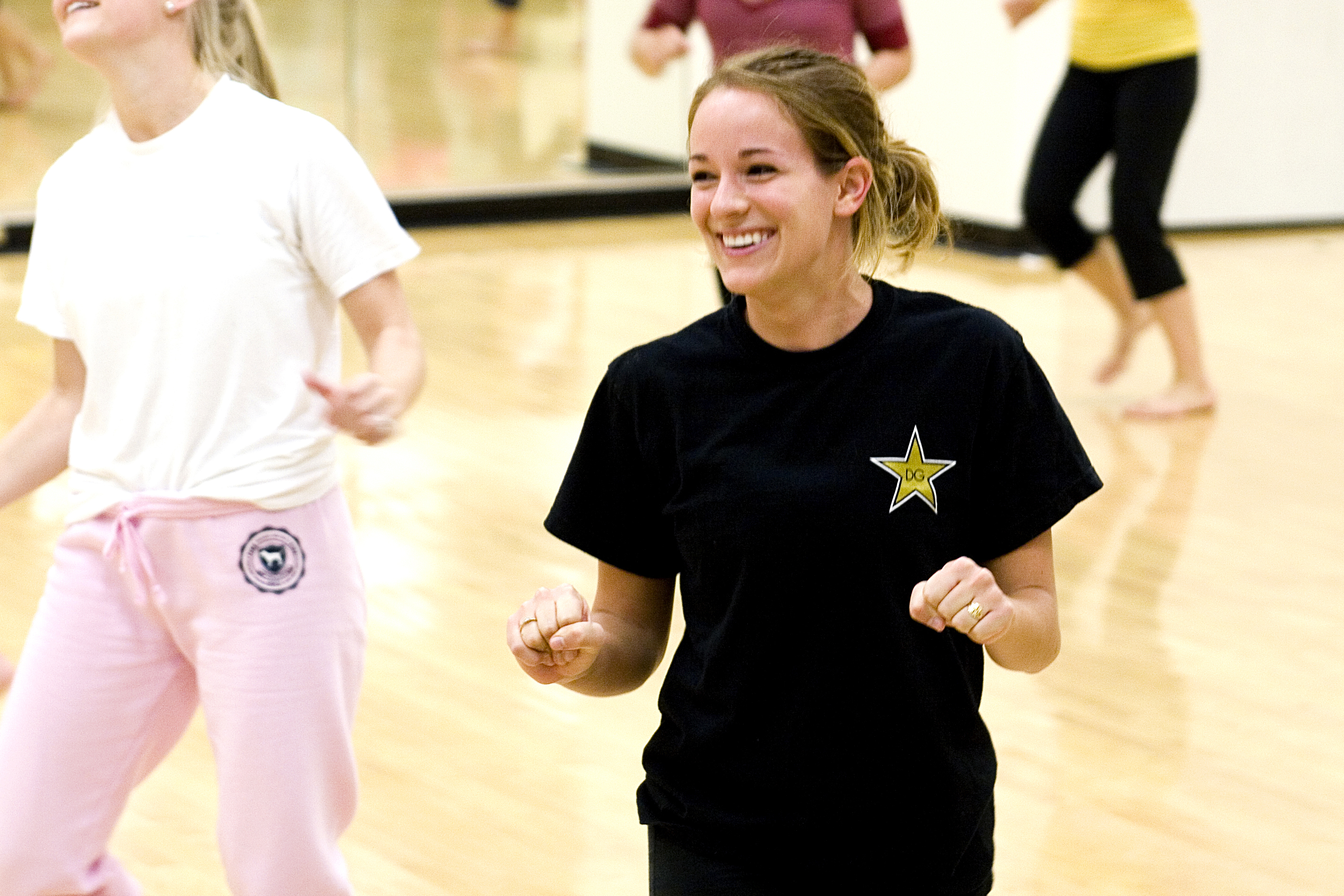January 15, 2009 — It's mid-January. How are you doing on your New Year's resolutions?
Don't give up if you haven't made it to the gym or joined that Pilates class yet.
Diane Whaley, associate professor of educational psychology at the University of Virginia's Curry School of Education, directs the Lifetime Physical Activity Program. She has found that middle-aged adults may not have developed successful strategies to maintain their motivation for achieving their health and fitness resolutions.
"They often are trying to do too much, and then when they miss an exercise session, they tend to give up," she said. "It's an 'all or nothing' way of doing it."
Whaley has identified several resolution-busters and offers tips on how to overcome them.
"Forgive yourself for missing the workout," she said. Replace vague or unrealistic goals with short-term goals that are more specific and appropriate, and follow a timeline for achieving them, she said.
Instead of planning to go to the gym every day, see if you can make it two or three times a week as a start. Once you get consistent with your commitment, increase your workouts to three or four days a week, and then add even more days of you want. If you do miss a day, ask yourself why you did and what you can do to overcome any obstacles getting in the way.
Those who want to lose weight should look beyond the numbers on the scale. That's not totally within one's control, she pointed out. A person can, however, keep track of eating more fruits and vegetables and fewer sweets.
Whaley recommends keeping a log or journal about fitness and health goals, to mark what's working and what's not. Coming up with all sorts of ways to become more active — not just going to the gym to work out — can help people change their lifestyles, too, she said.
Whaley serves on the Charlottesville Obesity Task Force. The group is working with eight families, whose members meet regularly and participate in a range of physical activities, from playing basketball to dancing. They provide a support system for each other. They also discuss how to overcome barriers to their goals, as well as other topics, such as how to budget for making healthy meals and snacks.
"Look for changes beyond weight," she said. "See if you feel more energy, if you feel stronger." And don't forget to celebrate successes along the way.
Contact Diane Whaley at dew6d@virginia.edu or 434-924-6193 or 434-249-2794.
Don't give up if you haven't made it to the gym or joined that Pilates class yet.
Diane Whaley, associate professor of educational psychology at the University of Virginia's Curry School of Education, directs the Lifetime Physical Activity Program. She has found that middle-aged adults may not have developed successful strategies to maintain their motivation for achieving their health and fitness resolutions.
"They often are trying to do too much, and then when they miss an exercise session, they tend to give up," she said. "It's an 'all or nothing' way of doing it."
Whaley has identified several resolution-busters and offers tips on how to overcome them.
"Forgive yourself for missing the workout," she said. Replace vague or unrealistic goals with short-term goals that are more specific and appropriate, and follow a timeline for achieving them, she said.
Instead of planning to go to the gym every day, see if you can make it two or three times a week as a start. Once you get consistent with your commitment, increase your workouts to three or four days a week, and then add even more days of you want. If you do miss a day, ask yourself why you did and what you can do to overcome any obstacles getting in the way.
Those who want to lose weight should look beyond the numbers on the scale. That's not totally within one's control, she pointed out. A person can, however, keep track of eating more fruits and vegetables and fewer sweets.
Whaley recommends keeping a log or journal about fitness and health goals, to mark what's working and what's not. Coming up with all sorts of ways to become more active — not just going to the gym to work out — can help people change their lifestyles, too, she said.
Whaley serves on the Charlottesville Obesity Task Force. The group is working with eight families, whose members meet regularly and participate in a range of physical activities, from playing basketball to dancing. They provide a support system for each other. They also discuss how to overcome barriers to their goals, as well as other topics, such as how to budget for making healthy meals and snacks.
"Look for changes beyond weight," she said. "See if you feel more energy, if you feel stronger." And don't forget to celebrate successes along the way.
Contact Diane Whaley at dew6d@virginia.edu or 434-924-6193 or 434-249-2794.
Media Contact
Article Information
January 14, 2009
/content/dont-reach-too-high-making-goals-getting-fit

